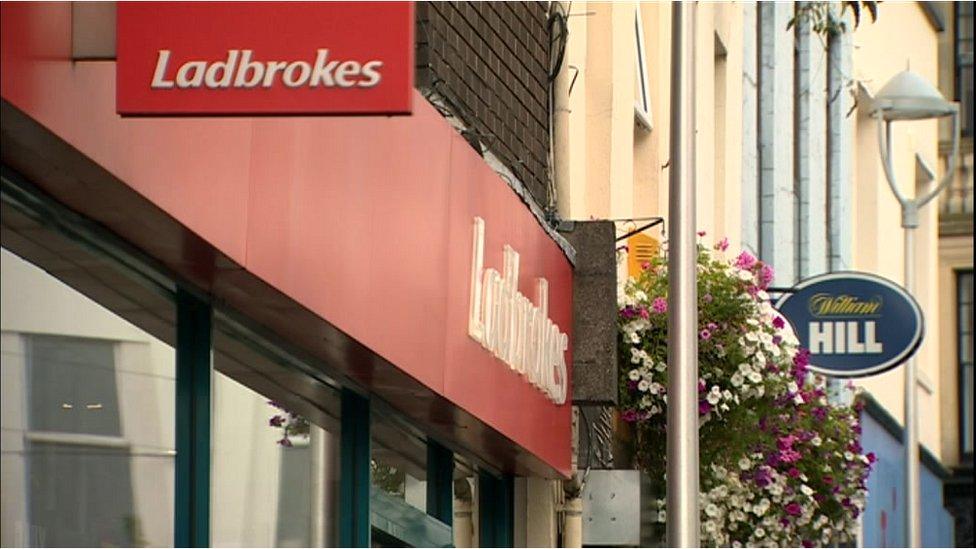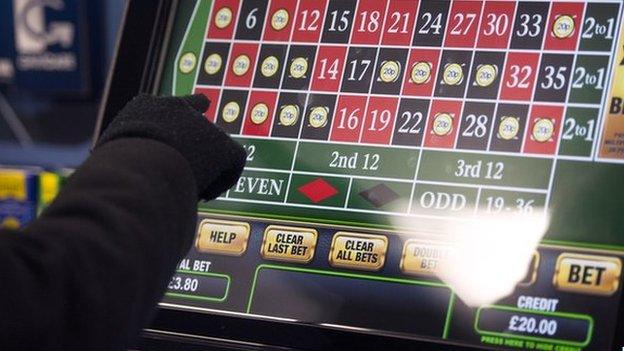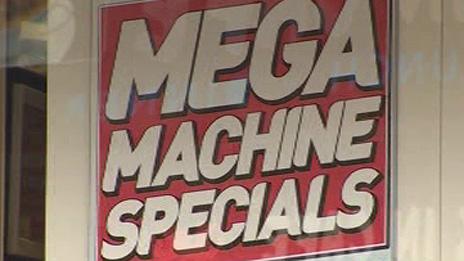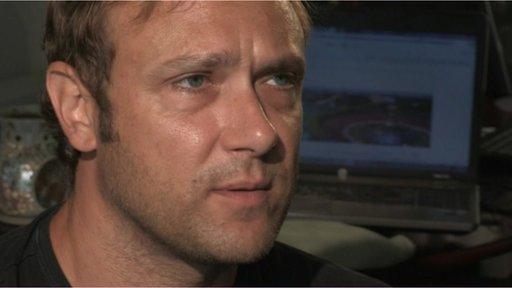Review call for 'dangerous' fixed odds betting machines
- Published

Fixed odds betting machines in bookmaker shops are dangerous and the government should review their use, a Swansea MP has said.
Carolyn Harris, who is chairing a parliamentary group investigating the subject, said addicts could lose thousands of pounds in one sitting.
She said the electronic touch-screen machines made "phenomenal" amounts of money for the bookmaker.
The UK government has said it was monitoring existing gambling controls.
Speaking to BBC Wales, the Swansea East MP said: "These machines are capable of taking £100 every 20 seconds, that's £300 every minute.
"And the machine doesn't give the punter, as they like to call them, the opportunity to stop and think about what they're doing. It's so rapid, it's literally pressing a button."
Fixed odds betting terminals first appeared in British betting shops in 1999. Last year, customers lost £1.7bn on the machines.
Betting shops are restricted to four machines in each shop, but critics say that had led to clusters of shops as companies try to increase the number of the terminals on the high street.

Fixed odds betting terminals
Also known as FOBTs or B2 Gaming Machines
Touch screen electronic gaming machines found in betting shops across the United Kingdom
Customers can play casino games such as roulette, poker and Black Jack, and electronic slot games and virtual racing
Maximum stake is £100, though the industry voluntarily introduced a limit £50 limit unless a gambler asks to stake more
Maximum prize money is £500
Approximately 1500 machines across Wales.

Ms Harris says the bookmakers have opened more shops in deprived areas, such as in her own constituency, and that the machines have changed how bookmakers are perceived.
"When the bookies were on the high street and they were just doing horse racing and dog racing, they were part of the fabric of the community now they're the scourge of the community."
"We need to have a complete overhaul and review of Fixed Odds Betting Terminals and hopefully come up with a solution which, it's not going to suit the bookies, but at least will help all the associated problems with these machines, including anti-social behaviour, money laundering, violence."
BBC Wales has spoken to addicts who describe them as the "crack cocaine" of gambling.

One man, who wanted to remain anonymous, said: "Once you're in that zone it's like nothing matters around you.
"There's nothing in the world that's more important than that machine, like making you play, put more money in, and nothing could have stopped me unless the place burned down, and even then I would have still hit the buttons till the fire brigade came."
Malcolm George, chief executive of the Association of British Bookmakers, says it is the most highly-regulated industry on the high street, and staff in their shops are trained to help customers who may have problems, many of whom they will see in their shops week in week out.
'I know the attraction is just too much'
He said: "I think betting shops are probably the safest environment in which you can gamble. I think if you look at the range of measures we have on our machines as opposed to, say, those in amusement arcades or casinos, they really are very effective and allow us to identify and spot people who can be getting into trouble with their gambling."
Last week newspaper reports claimed the UK Government was about to declare a review of the machines.
In a statement a spokesperson for the Department for Culture, Media and Sport said: "We will continue to monitor the effectiveness of existing gambling controls and will take further action if necessary."
Malcolm George of the ABB says the industry has accepted there will be another review of the machines, adding: "In many ways we'd welcome an evidence-based debate around this.
"It's very easy for the anti-gambling lobby to make really quite strong false claims about the industry. These machines have been in shops for fifteen years, there have been reviews, and when the evidence is put in front of government, they come to the same conclusions: it's absolutely right they should be there."
- Published13 June 2016

- Published11 January 2013

- Published11 February 2013

- Published30 September 2013
